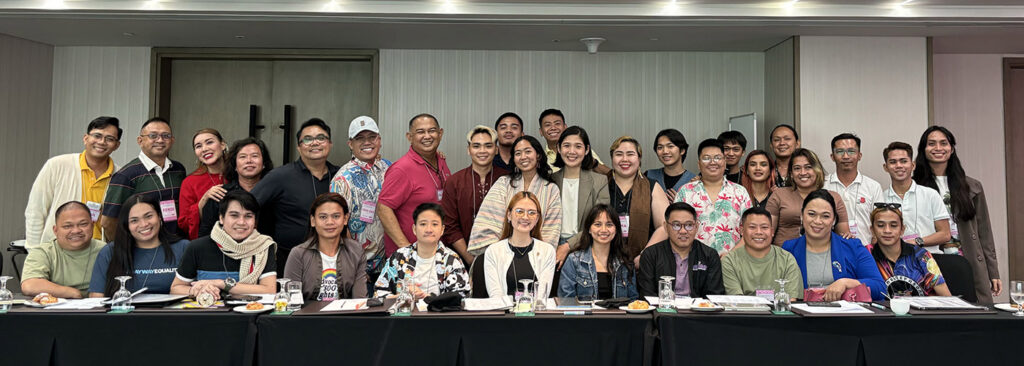Position: Chief Executive Officer / Executive Board Member of Hivos
Reports to: Supervisory Board
Introduction
Hivos was founded in 1968. Our founders held the conviction that development work should be secular, as true cooperation presumes respect for differing beliefs. In our first ever brochure, our founders wrote that “necessary changes should spring from communities themselves – from people at the base of society.” These convictions are still reflected in our work.
In the 1980s and 1990s, Hivos was one of the first major Dutch NGOs that opened offices in the Global South to operate in the close vicinity of its civil society partners and other stakeholders. Hivos currently works in 40 countries and has regional hubs in Latin America, East Africa, Southern Africa and the Middle East and North Africa (MENA).
Hivos focuses on three impact areas where major social and political transitions take place and where we have a track record and can achieve real impact: Gender Equality, Diversity and Inclusion; Climate Justice; and Civic Rights in a Digital Age. Under its current strategic compass, Hivos has five strategies for change: supporting frontrunners, forging multi-actor initiatives, influencing policies and practices, moving the middle, and boosting local ownership.
Vision
Hivos firmly believes in every person’s right to live in freedom and dignity, to enjoy equal opportunities, and to influence decisions made regarding the changes they want to see in their lives, communities and country.
We envision a world in which individual differences and backgrounds are respected and used to strengthen communities. A world in which people join forces to challenge the power imbalances that allow environmental degradation and propel climate change; that condone exploitation, oppression and exclusion; and that perpetuate gender inequalities.
Mission
Hivos wants people to be able to realize their full potential, unleashing their ingenuity and creativity to build just and life-sustaining societies for themselves and generations to come. Our mission is to amplify and connect voices that promote social and environmental justice and challenge power imbalances. We particularly work with marginalized rights holders to raise their voice and demand freedom of choice. Hivos supports the development of alternative solutions to deep-seated problems so that individuals and communities can make responsible and equitable choices within political and economic systems that serve their needs and preserve the planet. We connect people and organizations offering alternatives to those looking for solutions in their fight for social and environmental justice.
Where We Are
Hivos currently operates under its 2021-2024 Strategic Compass. As the strategic compass is nearing completion of its implementation, Hivos is working on a new Strategic Compass 2.0 (SC2.0). Even as we develop the SC2.0, we see important changes taking place in our context that are threatening civic space, accelerating the devastating effects of climate change, and entrenching the exclusion of already marginalized groups such as women and girls, queer people, and Indigenous people. These changes in our context motivate a change process in which Hivos is working to transform itself from an intermediary organization, mainly redistributing funds to civil society in the Global South, to an organization supporting the concept that social movements can change the rules of the game. This process requires building power through sustained organization, mobilization and advocacy from local all the way to global levels. It also will require a decolonized Hivos that has participatory perspective in the management of power. Last but not least, current funding streams are dwindling, and in 2026 quite a few significant Hivos programs are coming to an end.
This transformation will need to include diversification of Hivos’ donor base, which will remain a major priority for the Executive Board in the coming years. It requires a cultural shift and new ways of working, different stakeholder relations, and different skills and competencies from staff. Increasingly strict transparency, accountability and reporting demands from donors are calling for fundamental changes in monitoring, evaluation and control systems, both financially and in terms of deliverables.
Governance
Hivos is managed by an Executive Board (EB), made up of Chief Executive Officer (CEO) and Chief Operations Officer (COO). They are both statutory directors. However, the CEO has the final organizational responsibility. The Executive Board reports to the Supervisory Board.
The Executive Board is supported by the Management Team, comprised of regional directors and global support unit managers.
Within this governance model, the division of labor within the Executive Board is:
- The CEO and COO have separate responsibilities and portfolios. The CEO is the chair of the EB, which works as a collegial Board. In case of differences of opinion between the CEO and COO, the CEO has the final decision-making power.
- The CEO focuses on the strategy and positioning of Hivos; external partners and networks; innovation, communication and resource mobilization.
- The CEO and COO bear responsibility for the financial management of the organization, evaluation of the health of the organization, and anticipating potential risks or challenges.
- The CEO and the COO share responsibilities for supervising the managers of different units of the organization.
- The EB operates on a basis of dialogue, trust, clarity and joint responsibility, meaning that the board members can stand in for each other when necessary.
- The EB manages and directs the organization in a transparent, reflective and qualitative way. It meets on a formal, regular basis and actively engages with the Management Team on a regular basis.
- The EB initiates, supports, facilitates and monitors the implementation of programs and activities, which are the responsibility of the Management Team members, and the regional directors in particular.
- Within this context the line management of direct reports will be adaptive to ensure an equal span of control and functional domains.
Chief Executive Officer Role
The CEO is responsible for defining and championing the overall vision and strategy of Hivos, ensuring its translation into impactful programs through the guidance of the Management Team and their teams.
Key Responsibilities
Strategic Leadership: Drive the development and execution of strategies that advance the organization’s mission and long-term objectives, embodying a strong commitment to lead the implementation of the new Strategic Compass (2025-2030).
Transformational Initiatives: In partnership with the COO, lead transformative initiatives across the organization, promoting innovation, operational excellence, and a collaborative culture.
Strategic Alignment and Oversight: In coordination with the COO, oversee organizational investments and initiatives to ensure alignment with the Strategic Compass and Hivos’ long-term ambitions and ensure all business processes effectively translate strategy into programs, fostering coherence and alignment in organizational execution.
Fundraising and Financial Sustainability: Oversee the design and implementation of a comprehensive fundraising strategy, focusing on securing major donors, grants, and strategic partnerships to ensure long-term financial health.
Board Relations: Collaborate closely with the Supervisory Board to ensure transparency, alignment on strategic priorities, and sound governance practices.
Leadership Development: Alongside the COO, cultivate a high-performing leadership team, ensuring robust succession planning and growth opportunities for leaders across the organization.
Diversity, Equity, and Inclusion (DEI): Oversee DEI and organizational culture initiatives, fostering an inclusive environment that aligns with Hivos’ values.
Compliance and Governance: Ensure that organizational activities and long-term strategies comply with established policies, legal guidelines, and industry best practices.
Stakeholder Engagement: Cultivate and maintain strong relationships with key stakeholders, including government entities, donors, private sector partners, and peer organizations.
Competencies
Hivos operates as a decentralized and diverse organization, while maintaining centralized governance rooted in our Dutch origins. As we look ahead, we are committed to enhancing local ownership as a core principle, while minimizing middle management layers between staff and the Executive Board. Our highly motivated team is driven by human compassion and environmental responsibility, and we embrace a free-spirited, informal culture that values open dialogue and collaboration.
To lead effectively in this environment, the CEO should demonstrate the following competencies:
- People-Centered and Collaborative: Skilled in building strong connections and fostering a cooperative culture.
- Change Leader: Skilled in guiding and supporting people through change processes.
- Value-Driven: Deeply committed to Hivos’ core values of inclusiveness, diversity, and local ownership.
- Determined and Tenacious: Able to persistently pursue strategic decisions and guide their implementation.
- Analytically Skilled: Capable of translating high-level policies into actionable operational plans.
- Organized and Forward-Thinking: Structured in approach and proficient in long-term planning.
- Accessible and Empathetic: Approachable and sensitive to the needs of staff at all levels.
- Effective Communicator: Strong in both verbal and written communication, with the ability to engage diverse stakeholders.
- Financial Acumen: Strong understanding of financial management, with experience leading successful fundraising initiatives.
- Highest Integrity and Transparency: Committed to ethical practices and maintaining transparency in all actions.
Expertise and Experience
- Strategic Management: Minimum of 10–15 years of strategic management experience with full responsibility for outcomes, including at least two years in an executive leadership role.
- Strategy Development and Execution: Proven experience in crafting and successfully implementing organizational strategies and operational plans.
- Financial Acumen: Financially literate, including expertise in financial analysis to support a sustainable, financially sound organization.
- Global Perspective: Significant lived experience within global majority contexts and direct work with rights holders and communities.
- Fundraising Proficiency: Demonstrated success in fundraising from governmental and private entities, including consortia and intermediary organizations.
- External Engagement: Strong track record of building alliances and engaging with networks, coalitions, and movements.
- Governance Knowledge: In-depth understanding of corporate governance principles (knowledge of the Dutch Charities Code is a plus) and best managerial practices.
- Exceptional Communication: Outstanding oral and written communication skills, with effective public speaking abilities.
- International NGO Experience: Extensive experience within international NGOs with multi-regional and country-level operations.
- Change Leadership: Proven expertise in leading successful transformational initiatives within organizations.
- Language Proficiency: Fluent in English (written and spoken); proficiency in Dutch is desirable, with additional skills in Spanish, Arabic, or Portuguese beneficial.
- Feminist Leadership: Demonstrated commitment to feminist leadership principles.
Remuneration
The salary structure for the Hivos Executive Board is aligned with the Dutch Charity Directors Remuneration Guidelines.
Want to apply?
To apply, please submit a CV and cover letter detailing how you match the job description and personal requirements via the ‘Apply Here’ button.
This position is located in the Netherlands.
Note: We will review applications on a rolling basis and close applications once we have found a suitable candidate. If you have any questions, you can direct them the the following email careers@hivos.org.
Additional
Hivos is an equal opportunity employer committed to inclusion and diversity. We take affirmative action to ensure equal opportunity for all applicants without regard to race, color, religion, sexual orientation, national origin, gender identity or disability. However, women are strongly encouraged to apply



